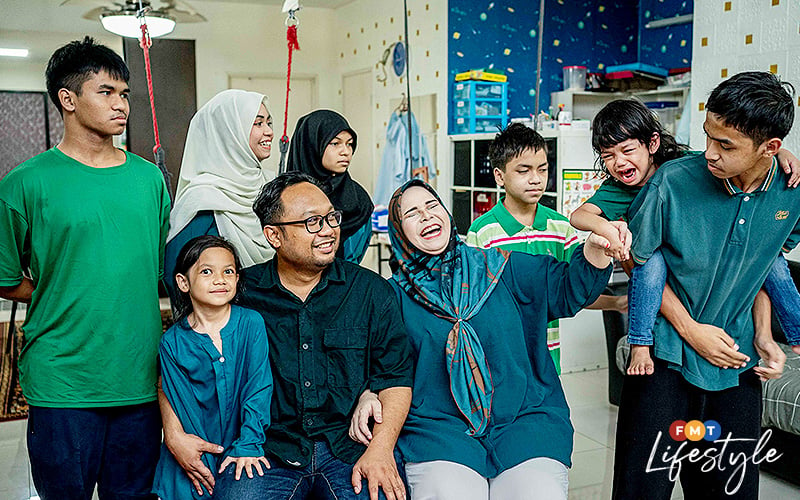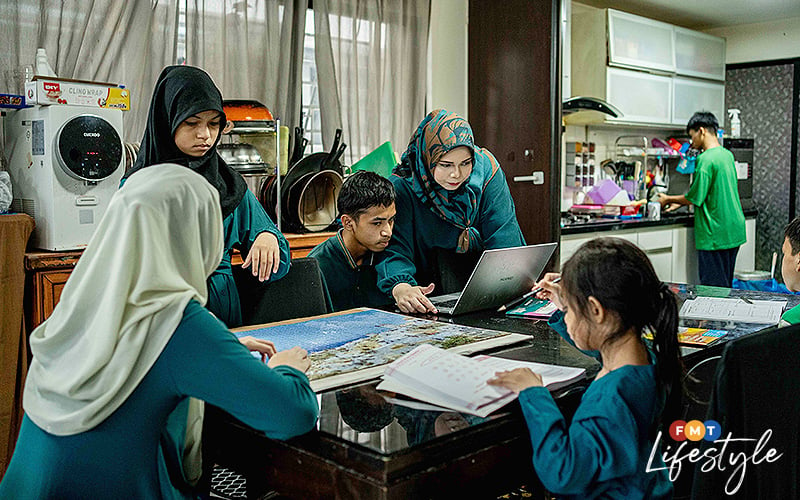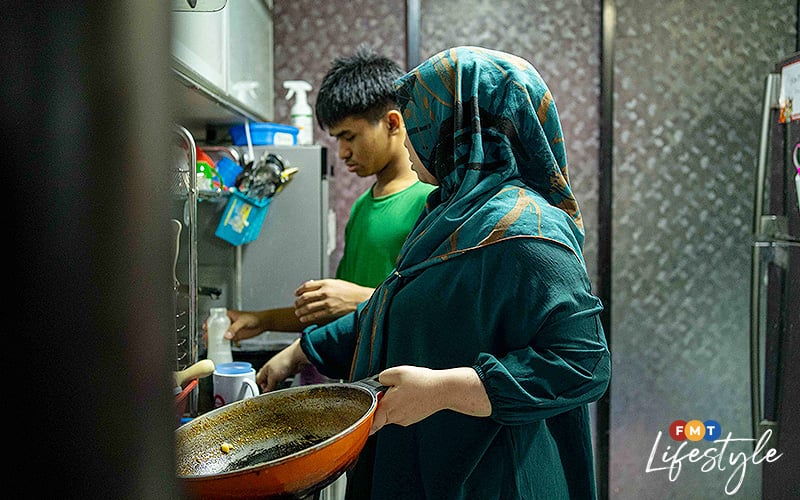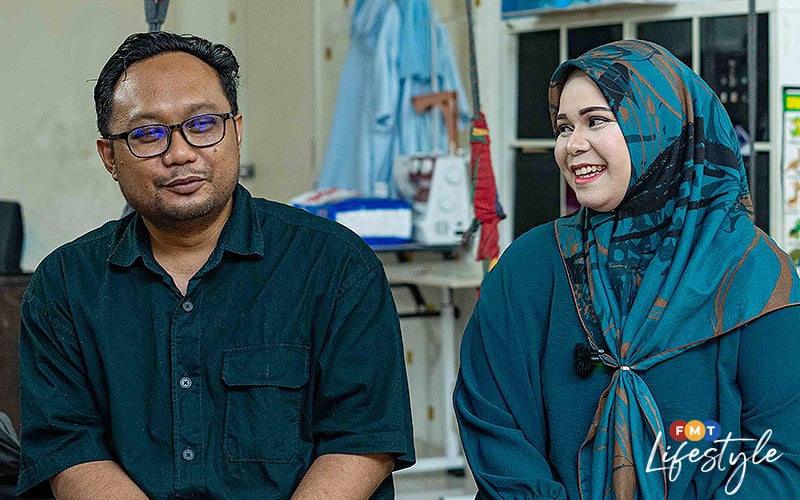
KUALA LUMPUR: At 4.30am while most teenagers are still fast asleep, 18-year-old Amirul Haziq is busy tackling household chores: washing the dishes, doing the laundry, and cooking breakfast for his family.
This sense of self-sufficiency in a young man is remarkable, more so since Amirul is autistic and dyslexic. It is also the direct result of his unconventional upbringing.
Muhammad Zaqkhwan Zawawi and Afifah Azizan are parents to a blended family of seven – five from Afifah’s first marriage, and two after the couple tied the knot. Four of their children have autism, and one has ADHD.
Together, Zaqkhwan and Afifah have built an environment where neurodiversity is not an obstacle but an opportunity for growth.
“We try to develop our autistic kids to be the best version of themselves. Now, they have turned out to be the best version of anyone their age,” Zaqkhwan, 39, shared with FMT Lifestyle.
Snippets of their unique family life are posted on social media. The couple share their experiences, parenting methodologies, and give valuable insights in the hope that other parents facing similar challenges can learn from them.

“Our intention is to bring awareness to all parents that autism is not a weakness,” said Afifah, 39. “We encourage parents to engage in activities with their kids so they can see their kids’ potential for themselves.”
Zaqkhwan plans to publish a book by year-end filled with practical tools for dealing with the complexities of raising autistic children. Last month, he set-up Persatuan My Autism Kebangsaan, an NGO dedicated to preparing teenagers with autism for the workforce.
On a personal note, although Afifah has a handle on things now, life was tough for her after she lost her first husband to a stroke. Becoming a single mother overnight, she struggled with handling her neurodivergent kids, and kept them busy instead with digital gadgets as a coping mechanism.
Tantrums, she recalled, were particularly hard to deal with, and she often felt lonely and isolated. However, when Zaqkhwan entered her life, things began to change.
“He thought me how to think positively,” she said.
He introduced a radical shift in parenting strategies. For starters, digital gadgets were banned for nearly two years. So instead of losing themselves in a virtual world, the kids were left with no choice but to deal with the real world they lived in.

“I also decided to raise them as normal kids,” Zaqkhwan said, introducing responsibilities, and a structured routine. I enrolled them in regular primary schools so they could experience a conventional environment first-hand,” he said.
Amirul, Arif Syarafuddin, 16, and Aida Afrina, 14, are currently part of the government’s Program Pendidikan Khas Integrasi at different schools in KL.
Zaqkhwan’s commitment to his kids’ well-being went beyond practical applications. He embarked on self-education as well. He learnt all he could about medicine and psychiatry. He read academic literature. He conducted his own trials and learned from mistakes.
He also applied mathematical methodologies to identify the specific autism spectrum a child fell in so he could address their behaviours with a holistic blend of physical, mental, and psychological strategies. He established personalised timelines so he could better gauge a child’s improvement.

The results were astounding to say the least as the children demonstrated newfound independence and resilience to the realities of life.
This unorthodox approach even caught the attention of other parents, PhD students, and special needs centres, all of whom sought their guidance.
“It’s not that my method is the best in the world. It’s just that we make sense of every method that’s around. I think that is more important,” Zaqkhwan said.
His success with his kids is what triggered the idea of writing his book.
“This book will explain everything in the simplest way. All parents with autistic kids deserve to have the right knowledge to raise their kids,” Zaqkhwan explained.
Afifah admitted that raising kids with special needs can be tough. But by being mentally strong, anything was possible. “Do not give up,” she said.
Zaqkhwan, on the other hand, encouraged parents to find positivity in hardship, despite how daunting that seemed.
“For our situation, we managed to change something that was impossible … with positivity, faith, hard work and consistency. Everybody can do it,” Zaqkhwan concluded.
For more information, visit Zaqkhwan’s website.
Desain Rumah Kabin
Rumah Kabin Kontena
Harga Rumah Kabin
Kos Rumah Kontena
Rumah Kabin 2 Tingkat
Rumah Kabin Panas
Rumah Kabin Murah
Sewa Rumah Kabin
Heavy Duty Cabin
Light Duty Cabin
Source
















